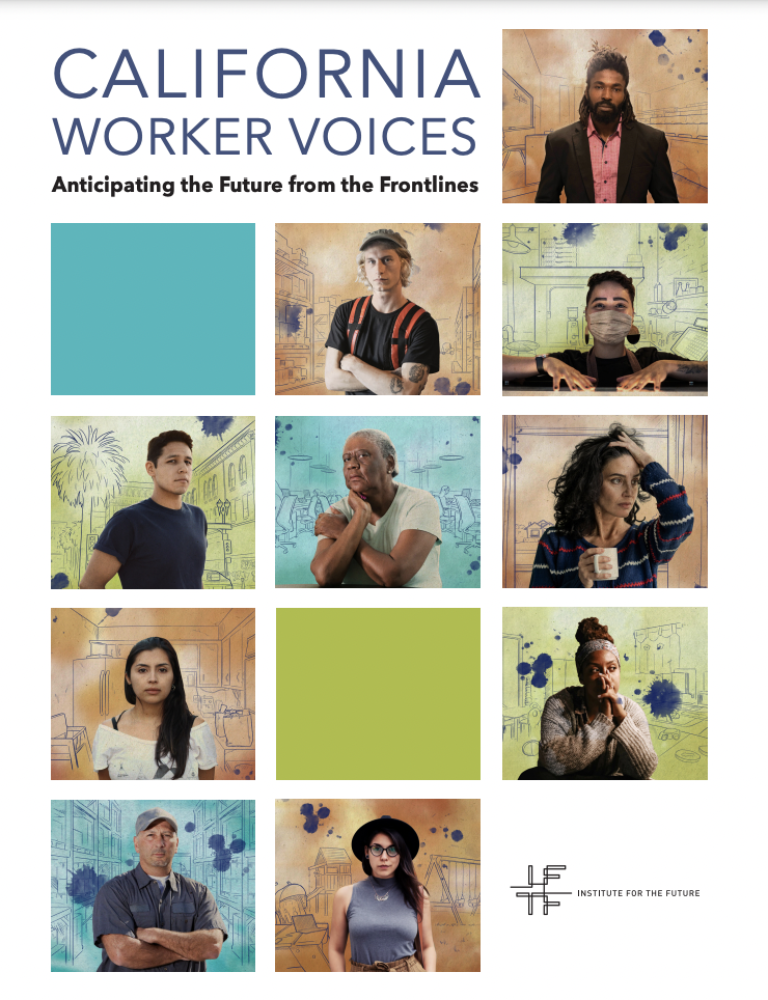IFTF’s new report California Worker Voices: Anticipating the Future from the Frontlines uses ethnographic foresight – a qualitative research method used to understand how people are experiencing the present in ways that are likely to grow and have increasing importance in the future – to examine the experiences of California’s low-income workers. The study, undertaken with support from The James Irvine Foundation, aims to amplify workers’ voices and inform actions for building better work futures.
This report gives voice to all of the frontline and essential workers, who were risking their lives during Covid. It showcases their motivations, their striving; being creative for income streams but facing an impossible environment that makes advancement very difficult. It uncovers some Covid-era work trends that may extend into the future and details solutions to some of the challenges gig workers are facing now, and will continue facing in a post-pandemic world.
California’s low-wage workers are experiencing a large-scale transformation from “institutional” to “non-institutional work.” The “first curve” of work refers to institutionalized work, a model where jobs are concentrated in large, formal hierarchical institutions and for which we have established norms, practices, regulatory and legal frameworks. But this first curve is being replaced by the “second curve” – which consists of informal, piecemeal work, coordinated through algorithms and web platforms; the second curve is fragmented and involves assembling hours of paid tasks obtained from a diverse set of employers and platforms.
As Covid-19 worsens deep inequities facing California’s low-wage workers, IFTF used “ethnographic foresight”—a research method used to understand how people are experiencing the present in ways that are likely to grow and have increasing importance in the future—to determine what workers’ experiences working in the “second curve” have been like, to evaluate how current programs and services meet worker needs, where gaps exist, and how those gaps can be filled.
Based on these characteristics, IFTF determined workers need philanthropy and government to explore and implement solutions to address these challenges, including extending existing worker organizations or creating new ones to reach second-curve workers; creating connections for workforce development organizations to social media sites and platforms that play increasingly important roles in second-curve workers’ lives; and more.

